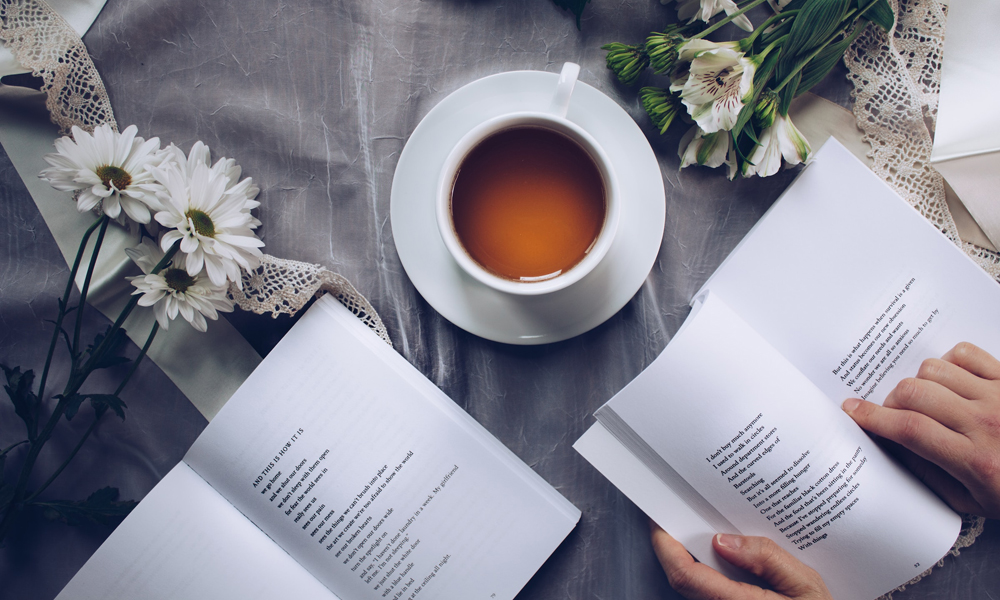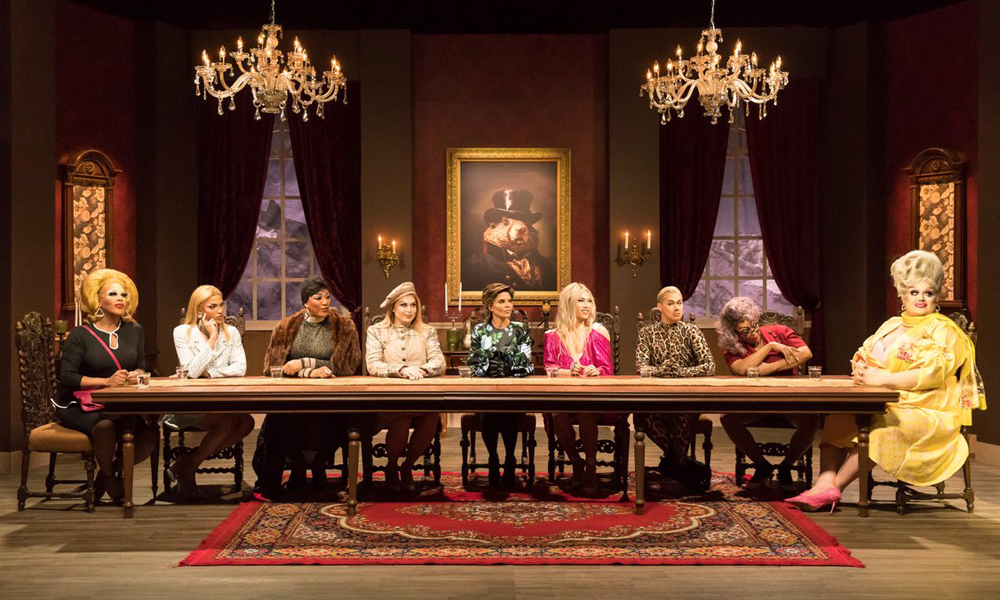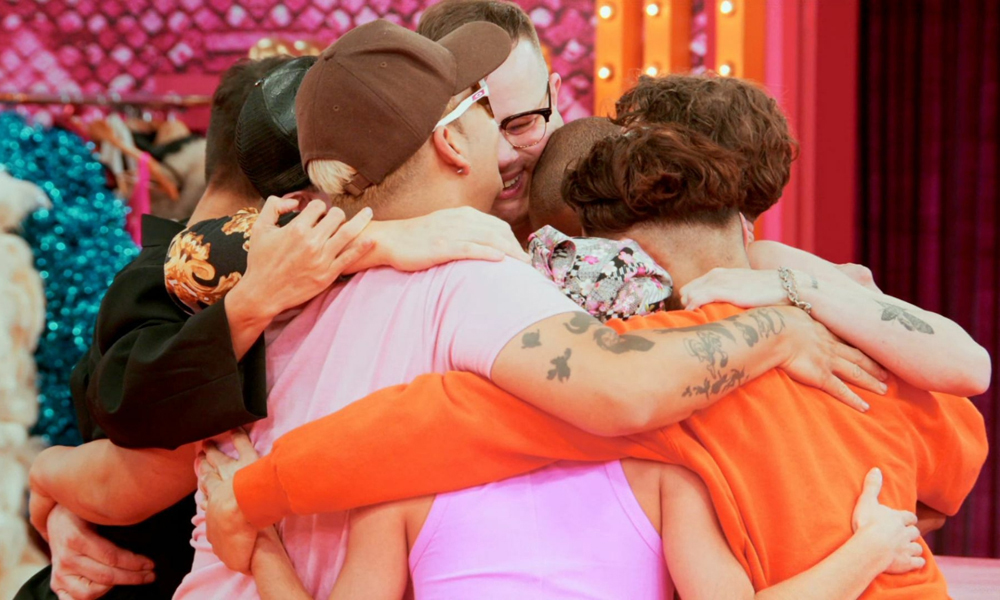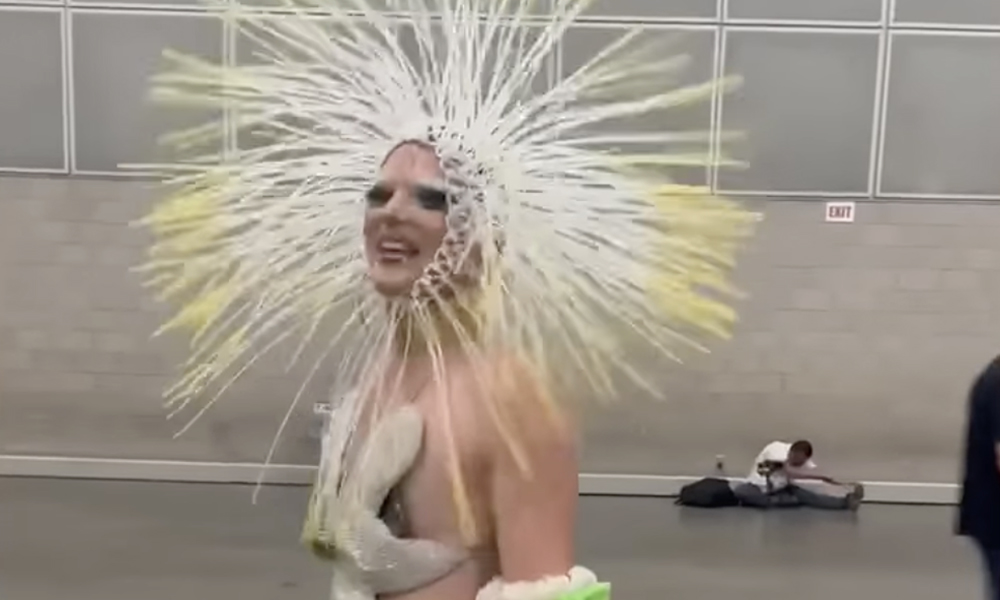Here are eight poetry collections in a variety of themes and styles that will help you celebrate pride this month…
If you’re looking to dabble in the poetics, pride month is a great reason to fill your bookshelves — or ever-growing library hold list — with poetry written by queer and trans people. These collections span a variety of themes and styles and are all beautiful, reflective companions to take with you as you celebrate pride this June.
## Erin Taylor — Bimboland
(Archway Editions, 2022)
In Erin Taylor’s debut collection Bimboland, the poet does not withhold. Ranging in subject matter from the politics of sex work, desire, money, and mass grief, Taylor implores readers to join them on a journey of unshaking vulnerability.
Taylor’s poetic voice is commanding and astute.
In the poem “baby birding fantasy” they write:
I am terrifyingly determined
to love
Their style welcomes any reader in to confront the topic at hand alongside them — rather than leaving them shuttered, they are invited inside to experience the honesty, if not truth, in Taylor’s words.
## Natalie Wee — Beast at Every Threshold
(Arsenal Pulp Press, 2022)
A feat of reflections on family memories, diaspora, cultural histories, and ocean-deep longings and grief — Beast at Every Threshold is unique in stylistic choice and vibrant with pop culture and queer celebration.
Natalie Wee eloquently takes the reader on a journey through this collection. One that flows naturally but is still speckled with the reality of life’s interruptions and introspections. At times the poet will double you over in grief before she promptly chisels life’s magic — and the magic of queer life specifically — into a shining stone you can hold in your hand.
In “ASAMI WRITES TO KORRA FOR THREE YEARS” Wee writes:
It is not the moon’s light that demands our praise
but the space it travels
to reach us.
## Oliver Baez Bendorf — Advantages of Being Evergreen (CSU Poetry Center, 2019)
In this collection, Oliver Baez Bendorf writes poetry that seems to be both an altar and an offering.
Grappling with queer and trans identity, mourning, fear, and tenderness, this collection is a place where readers can receive relief for their longing and give themselves over to the sacredness — and futility — of existence.
The poet sets vivid scenes with colourful images of dark moments, and beads of light that break through.
In “MY BODY THE HAUNTED HOUSE” he writes:
A haunted house is always alone. People come to be scared because they like it they like to be scared knowing they can leave anytime and they do they always do they always leave.
## Jennifer Espinoza — I’m Alive. It Hurts. I love It.
(Big Lucks Books, 2014)
Much like its title, this collection reads like a cathartic shout into the void, echoing back to you — reminding you of failure, disappointment, and love, in the same frustrated breath.
Jennifer Espinoza writes with an unwavering sense of honesty. From the dread of earthly existence to the potential of joy in life’s mundanities, she tells it without hesitation. This collection urges readers to ask themselves what it would look like if they tried to love their own ugliness, or at least laugh at it sometimes.
Espinoza writes:
you’re going to love yourself
and i’m going to love myself
and we will be the endlessness
of two mirrors
facing one another.
## Dionne Brand — Nomenclature: New and Collected Poems
(McClelland & Stewart, 2022)
Dionne Brand is one of the most significant voices in Canadian poetry, her highly regarded (and awarded) decades-long career as a poet has led to this collection.
Nomenclature includes eight volumes of Brand’s previous work alongside a new, long-form poem under the book’s title.
This collection gives readers the opportunity to swim in the many voices Brand has had throughout her career, while still noticing the common thread of her poignancy and authoritative political observations.
In the titular work, she gestures to the pandemic and criticizes the capitalistic responses to the mass-trauma:
I am turning into the something
necessary to live this
Astute political commentary is punctuated by reflections on cultural identity, sexuality, and race throughout much of Brand’s work.
## John Elizabeth Stinzi — Junebat
(House of Anansi Press, 2020)
When you read the title of this collection, you might wonder what a Junebat is. And that is precisely what each page turn will reveal to you.
John Elizabeth Stinzi challenges form, embracing its malleability as she does with the self and the body.
The poet explores the painful process of becoming under capitalism. Traversing themes of gender, sexuality, and selfhood they welcome readers to their inner world and how it can feel to merge that part of yourself with the outer world. And the concept of the Junebat is right there all the while — a curious thread that always finds you.
In “TO BE BESIDE ONESELF” Stinzi writes:
I am trying to personalize
myself to my melancholy, don’t want to be neighbour
to my own narrative anymore. I’m losing sleep
eavesdropping on my traumas
## Sierra DeMulder — Ephemera
(Button Poetry, 2023)
Sierra DeMulder’s newest poetry collection is a walk through the hallowed halls of memory — doors to hope and death on either side. Set for publication on June 6, the collection explores themes of family, love, and grief.
DeMulder is an experienced poet of emotional intensity, but the intensity is a slow simmer rather than a saucepan bubbling over. She conveys the center of any feeling and lets it melt its way around the reader.
In the poem “New Vows” from this forthcoming collection, she writes:
O, beloved, we have
been so happy lately, it’s making us nervous.
And isn’t that what marriage is all about:
a love so darling, so hallowed and exposed,
we both volunteer to be its keeper—when
the joy runs dry, when the body fails—
## KB Brookins — Freedom House
(Deep Vellum, 2023)
In KB Brookins debut full-length collection, the poet draws influence from music and uses humor to elevate their writing craft.
Freedom House is set to release on June 16 and explores themes of gentrification, body politics, climate change, masculinity, and even more. Brookins delves into the fear that comes with being Black, queer, and trans in Texas while also envisioning how a future of freedom can exist.
The poet takes you through intimate moments of their gender transition and weaves in musical references, keeping readers engaged and surprised with every turn of a page.
In “T Shot #6: A Parallel Universe” they write:
if i were a boy
is not a phrase I yell only when Beyoncé sings it.
I think heavily on the day the nurse instead said
it’s a boy
There are plenty more queer and trans poets beyond this list — both old and new — that are worth reading this month, but these contemporary voices are a great place to begin.






POST A COMMENT